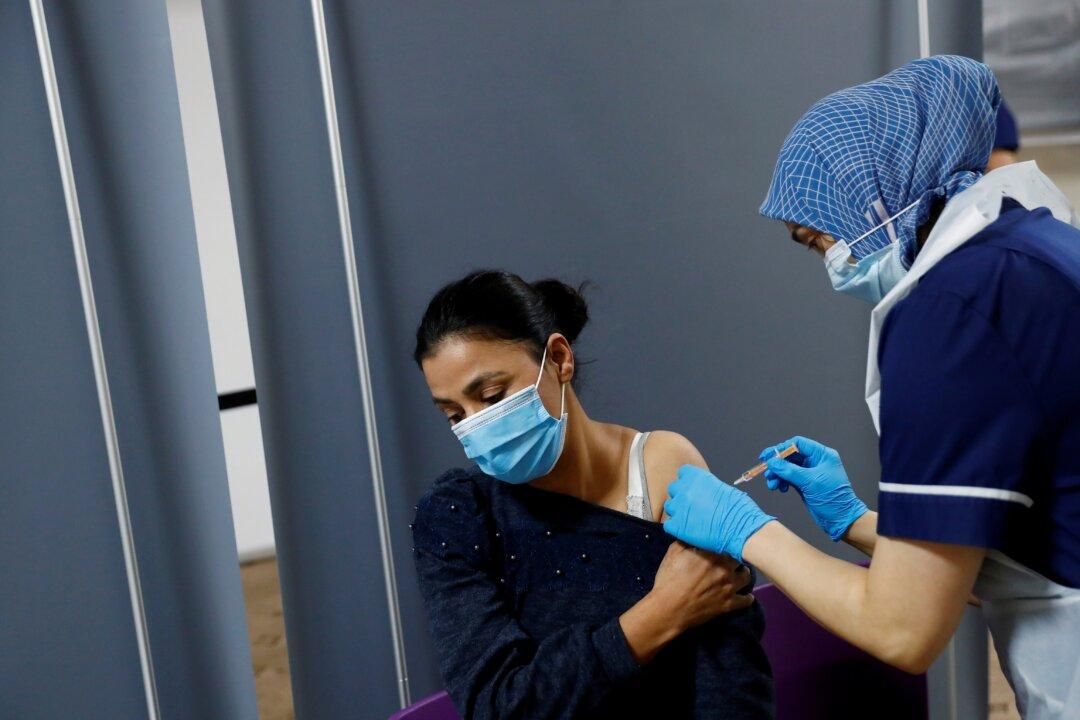LONDON—Britain said on Thursday that global supply bumps meant its vaccine rollout would be slower than hoped in coming weeks, but it expected deliveries to increase again in May, June, and July.
British health officials warned on Wednesday that the world’s fastest big economy rollout of the vaccine would face a significant reduction in supplies from March 29, though they did not say where the problems were.





